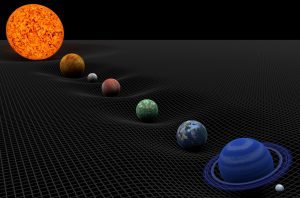Quantum Field Theory (QFT) stands as one of the most significant frameworks in modern physics, offering a profound understanding of fundamental particles and their interactions. Rooted in the marriage of quantum mechanics and special relativity, QFT has revolutionized our comprehension of the universe at its most fundamental level.
Introduction to Quantum Field Theory
At its core, Quantum Field Theory provides a mathematical description of the quantum nature of fields and particles. Rather than considering particles as discrete entities, QFT treats them as excitations of underlying fields permeating space and time. This approach allows for the treatment of both matter and forces in a unified framework.
Foundations of Quantum Field Theory
The development of QFT was built upon the principles of quantum mechanics, which describes the behavior of particles at the smallest scales, and special relativity, which governs the behavior of objects moving at high speeds. Combining these two theories led to the creation of QFT, allowing for the description of particles with arbitrary energy and momentum.
Quantum Field Theory and Particle Physics
In the realm of particle physics, QFT has been instrumental in understanding the properties and interactions of elementary particles. Through QFT, physicists have developed the Standard Model, which classifies particles and describes their interactions through fundamental forces.
Challenges in Quantum Field Theory
Despite its successes, QFT faces several challenges, including the issue of renormalization, which arises when attempting to reconcile infinite quantities in calculations. Additionally, the quest for a unified theory that combines all fundamental forces, known as a Grand Unified Theory or Theory of Everything, remains elusive.
Quantum Gravity: The Holy Grail
One of the most significant challenges in modern physics is the incorporation of gravity into the framework of QFT, giving rise to the concept of Quantum Gravity. Traditional attempts to quantize gravity have encountered conceptual and mathematical difficulties, highlighting the need for a deeper understanding of the fundamental nature of spacetime.
Approaches to Quantum Gravity

Several theoretical approaches have been proposed to address the challenge of Quantum Gravity, including String Theory, which postulates that fundamental particles are one-dimensional strings vibrating at different frequencies, and Loop Quantum Gravity, which seeks to quantize the fabric of spacetime itself.
Implications and Applications
The implications of successfully uniting quantum mechanics and gravity are profound, with potential applications ranging from cosmology and the study of the early universe to resolving paradoxes such as the Black Hole Information Paradox. Furthermore, the technological advancements driven by a deeper understanding of fundamental physics could revolutionize various fields.
Future Prospects and Research
As technology advances, experimental validation of theories in quantum gravity becomes increasingly feasible. Projects such as the Large Hadron Collider and gravitational wave detectors offer promising avenues for testing predictions derived from Quantum Gravity theories. Continued research in this field promises to unveil new insights into the nature of the universe.
Conclusion
Quantum Field Theory has emerged as a powerful framework for understanding the fundamental forces and particles that govern the universe. While challenges remain, particularly in the quest for Quantum Gravity, the progress made thus far has reshaped our understanding of the cosmos and holds immense promise for the future of physics.
FAQs
What is the significance of Quantum Field Theory in modern physics?
Quantum Field Theory provides a unified framework for describing both particles and forces, revolutionizing our understanding of the universe.
How does Quantum Field Theory differ from classical field theory?
Classical field theory treats fields as continuous entities, whereas Quantum Field Theory quantizes these fields, treating them as collections of discrete particles.
What are the major challenges in developing a theory of Quantum Gravity?
One major challenge is reconciling the principles of quantum mechanics with the classical theory of gravity, leading to conceptual and mathematical difficulties.
What experimental evidence supports the predictions of Quantum Field Theory?
Experimental evidence from particle accelerators and other high-energy physics experiments has consistently validated the predictions of Quantum Theory, particularly within the framework of the Standard Model.
How might a successful theory of Quantum Gravity impact everyday life?
While the immediate impacts may not be apparent, a deeper understanding of fundamental physics could lead to technological advancements with far-reaching implications, from advanced materials to new energy sources.











